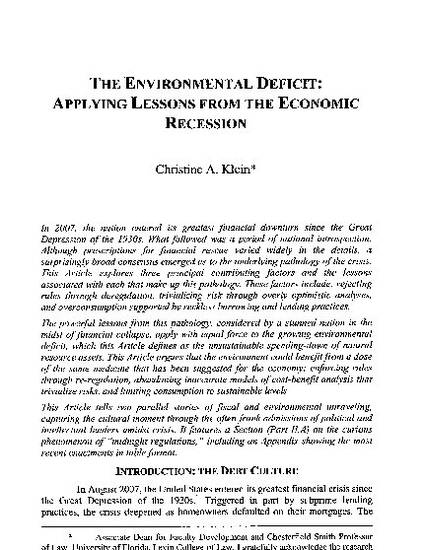
In 2007, the nation entered its greatest financial downturn since the Great Depression of the 1930s. What followed was a period of national introspection. Although prescriptions for financial rescue varied widely in the details, a surprisingly broad consensus emerged as to the underlying pathology of the crisis. This Article explores three principal contributing factors and the lessons associated with each that make up this pathology. These factors include: rejecting rules through deregulation, trivializing risk through overly optimistic analyses, and overconsumption supported by reckless borrowing and lending practices.
The powerful lessons from this pathology, considered by a stunned nation in the midst offinancial collapse, apply with equal force to the growing environmental deficit, which this Article defines as the unsustainable spending-down of natural resource assets. This Article argues that the environment could benefit from a dose of the same medicine that has been suggested for the economy: enforcing rules through re-regulation, abandoning inaccurate models of cost-benefit analysis that trivialize risks, and limiting consumption to sustainable levels.
